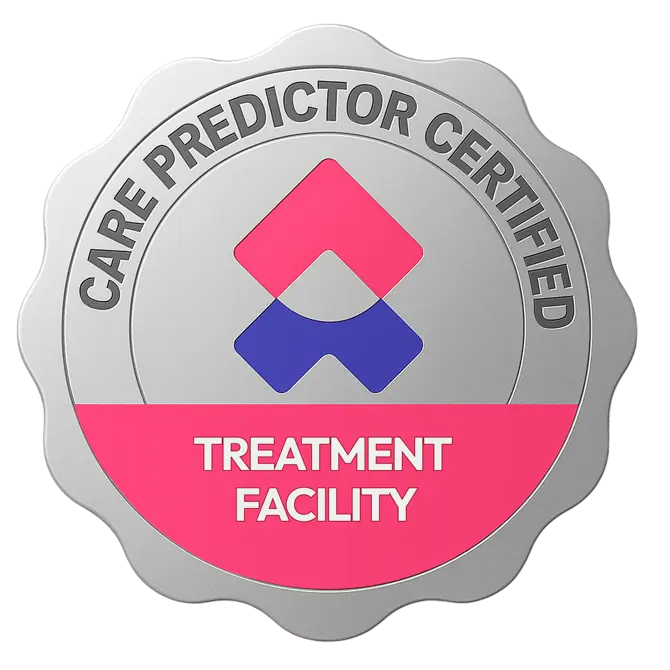Borderline Personality Disorder (BPD) is largely misunderstood in the general population and many clinicians do not know how to manage the disorder.
Generally, clients with BPD have already been to treatment a number of times to deal with urges of self-harm, suicidal ideation, and attention seeking behaviors. At Alter, we use proven techniques to help these clients live fuller lives without as many debilitating symptoms.

Alter’s comprehensive program combines the most proven treatment for borderline personality disorder—dialectical behavior therapy (DBT)—with holistic healing modalities for better success outcomes.
Clients with BPD usually come in at a crisis stabilization (CSU) or residential (RTC) level of care, depending on their level of suicidality, after which they will generally transition to partial hospitalization (PHP) followed by intensive outpatient (IOP) treatment. We provide dedicated consultation services to help you find the best program for your needs.

BPD is a personality disorder, not a mood nor a psychotic disorder, and it requires a different treatment plan than these types of disorders. Borderline Personality Disorder is very painful to live with, and getting treatment from the right team makes all the difference.
Alter is uniquely positioned to help BPD patients by offering a variety of DBT groups—the type of therapy which has been proven to be the most effective with personality disorders. DBT skills include: emotional regulation, distress tolerance, interpersonal effectiveness and mindfulness.
We offer a larger variety of DBT groups compared to other centers, and our entire team is well-trained in this modality in order to specifically serve our borderline clients.
Call Now for Program Availability
Contact our admissions team to learn about our programs and to check availability at our facilities, or submit your insurance to verify coverage.
“Alter has some of the best and caring staff in the medical industry. They helped save my life from emotional episodes and I am grateful to them. I highly recommend Alter if you are seeking mental health treatment or do not know where to turn. Thank you. ”
– Eric S.


It is important that families understand that personality disorders, such as BPD, cannot be treated with medication and that intense therapy and a willingness to change are two of the biggest factors in recovery.
That being said, the team at Alter keeps the family informed at every step of the way and works to equip families with information to help them deal with their loved one’s diagnosis of BPD. Our team will also invite family to family therapy when it makes sense for the overall success of the treatment plan.
Borderline personality disorder (BPD) is a mental health disorder characterized by pervasive patterns of instability in interpersonal relationships, self-image, emotions, and behavior. Individuals with BPD often experience intense and unstable emotions, have difficulty regulating their emotions and impulses, and struggle with a strong fear of abandonment. BPD typically emerges in early adulthood and can have a significant impact on various areas of life, including relationships, work, and self-esteem.
Many people get borderline personality disorder and bipolar disorder confused with one another. In fact, one study in 2017 showed that 40% of people with BPD were misdiagnosed with bipolar disorder type 2.
These two disorders do have a lot in common, but there are also marked differences. Both conditions cause severe mood changes, but the moods will look different with each disorder. Bipolar produces mania and depression, while BPD will produce intense feelings of emotional pain, loneliness, and desperation.
Also, mood changes with BPD are usually very brief and last for a few hours, whereas bipolar mood swings can last days or even weeks.
The exact cause of borderline personality disorder (BPD) is not fully understood, but it is believed to result from a combination of genetic, neurobiological, and environmental factors. Here are some factors that may contribute to the development of BPD:
Invalidating environments: Growing up in environments where emotions are dismissed, invalidated, or punished can contribute to the development of BPD. Individuals raised in invalidating environments may internalize a sense of shame, self-doubt, and invalidation, leading to difficulties in emotion regulation, self-esteem, and interpersonal relationships characteristic of BPD.
There are no proven medications yet that help specifically with borderline personality disorder, however, some options exist that can treat various symptoms related to BPD. Some medicines can alleviate symptoms of depression and anxiety, but they are not considered a cure for BPD.
Medication should not be considered the only treatment for borderline personality disorder, but rather one tool among many.
Setting boundaries with a loved one with BPD requires clear communication and consistency. Start by identifying your limits and expressing them assertively but compassionately. Use “I” statements to convey your needs and expectations. Enforce consequences if boundaries are violated, but remain supportive and empathetic. Seek guidance from a therapist experienced in working with BPD to develop effective boundary-setting strategies tailored to your situation.
Call Now for Program Availability
Contact our admissions team to learn about our programs and to check availability at our facilities, or submit your insurance to verify coverage.
We accept most major insurance providers including the ones displayed here.










We accept most major insurance providers including the ones displayed here.
Submit your insurance to confirm coverage.




















Our facilities have been awarded prestigious recognition and certifications by adhering to rigorous guidelines and exceeding quality standards with consistent, safe & effective healthcare services.



Our mission is to advance the future of mental health care through innovative, evidence-based treatments, delivering excellence, fostering human connection with unwavering compassion that empowers every individual to thrive.
34270 Pacific Coast Hwy
3rd Floor
Dana Point, CA 92629
Questions? Call now to speak confidentially with an admissions counselor.